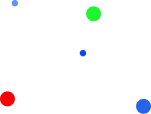

Companies/Startups Consulted
Tech Talents Trained
Cloud Projects Delivered
I architect and maintain scalable cloud infrastructure using AWS, Azure, and best-in-class practices.
I craft user-friendly web experiences using modern technologies that don’t just work—but wow.
From bootcamps to one-on-one sessions, I break down complex topics into relatable, actionable knowledge.
Implementing CI/CD pipelines, automating deployments, and enhancing system reliability for faster product delivery.



I’m a multi-skilled tech professional with a passion for impact. Over the last 20+ years, I’ve worked across web development, cloud engineering, DevOps, and tech education—bridging the gap between technical know-how and human experience. a multi-skilled tech professional with a passion for impact. Over the last 20+ years, I’ve worked across web development, cloud engineering, DevOps, and tech education—bridging the gap between technical know-how and human experience. Whether I’m automating pipelines or mentoring aspiring developers, I bring clarity, consistency, and care to every project.

Feedback from people I’ve worked with, trained, or built alongside.


Whether you're building a product, need DevOps help, or want to start your tech journey — I’m always open to great conversations and collaboration.
Got a project, idea, or just want to say hi? I’d love to hear from you.